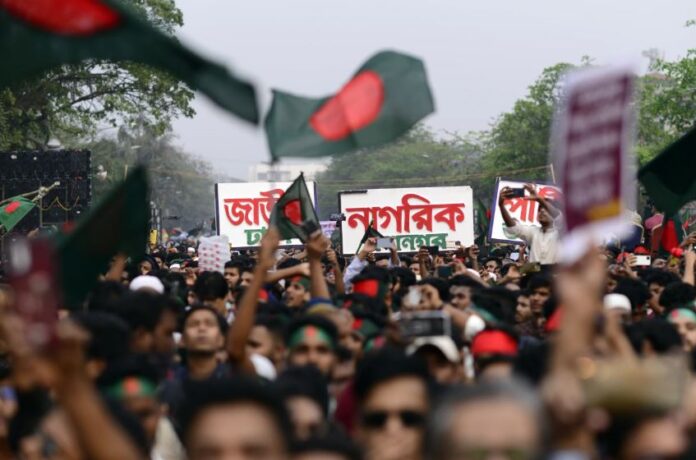Dhaka, Bangladesh: The student activists who spearheaded the mass uprising that toppled former Prime Minister Sheikh Hasina last summer have taken a bold step into the political arena, unveiling the formation of the National Citizen Party (Jatiya Nagarik Party) on Friday. The announcement, made during a rally outside Parliament in Dhaka, marks a bid to reshape Bangladesh’s deeply entrenched and divisive political landscape, long dominated by the rival dynasties of Hasina and Khaleda Zia.
The new party, led by 26-year-old Nahid Islam—a prominent figure in the July-August protests—aims to break the mold of nepotism and corruption that has defined Bangladeshi politics since the nation’s birth in 1971 following a bloody war with Pakistan. Addressing thousands of supporters, mostly youths, Islam declared the party’s mission: to dismantle “constitutional autocracy” and establish a “new democratic constitution.” He emphasized that the uprising was not just about removing Hasina’s government but about forging a political system rooted in unity, justice, and merit over dynastic rule.
Also Read: China Unveils Innovative Lightweight Mars Drone
The launch event saw a 151-member committee announced, with nine other student leaders from the uprising appointed to key roles. A crowd of up to 50,000—far short of the 300,000 anticipated by organizers—gathered to hear promises of sweeping reforms. Invitations were extended to interim government head Muhammad Yunus, other political parties like Zia’s Bangladesh Nationalist Party (BNP), and foreign diplomats, though Hasina’s Awami League and its allies were notably excluded. Neither Yunus nor his advisers attended, and diplomats from major powers like India were absent.
The Pentagon says China now has 600 operational nuclear warheads, along with big leaps in diversity and precision.
Critics have labeled the National Citizen Party a “King’s Party,” suggesting it has the backing of Yunus, the Nobel laureate steering the interim government since Hasina’s ouster. Social media has buzzed with accusations of orchestration, but political analyst Nazmul Ahsan Kalimullah told The Associated Press it’s more than that. “They’re connecting with young people who’ve felt sidelined by mainstream forces like the Awami League and BNP,” he said, adding that the party likely enjoys Yunus’s tacit support and “most probably has a future.”
The party’s agenda strikes at the heart of Bangladesh’s challenges. Islam, who has fiercely criticized India’s regional influence and demanded Hasina face trial for deaths during the uprising, framed the movement as a chance to “dream anew” and build a reformed nation. Whether this fledgling party can disrupt decades of dynastic dominance remains to be seen, but its emergence signals a restless youth ready to redefine Bangladesh’s political destiny.



